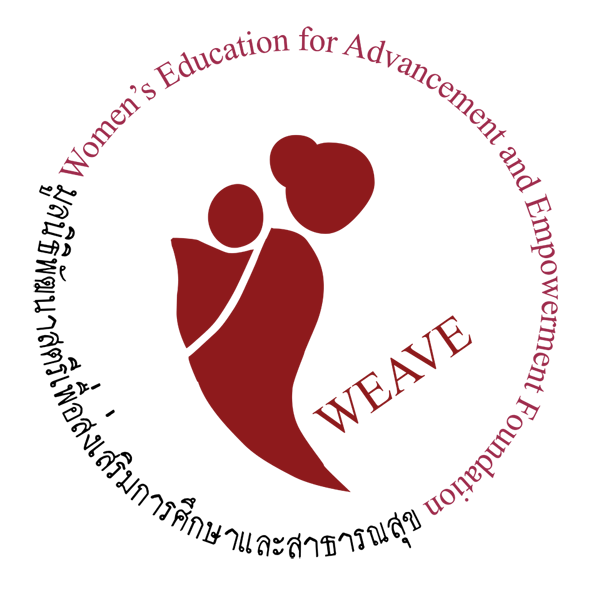By: Mitos Urgel
Who do we consider to be the significant forces behind the strong foundation, growth and development of young children?
In the communities where WEAVE works — along the Thai-Burma border — immediate family members, communities and caregivers play a vital role.
 WEAVE prioritizes community efforts that build teacher’s capacities and empower children through active participatory methods. This begins by identifying the concerns and issues that are a priority for young children, and then defining viable and culturally appropriate interventions to enhance the capacities of families and communities to act on their decisions.
WEAVE prioritizes community efforts that build teacher’s capacities and empower children through active participatory methods. This begins by identifying the concerns and issues that are a priority for young children, and then defining viable and culturally appropriate interventions to enhance the capacities of families and communities to act on their decisions.
WEAVE’s 20 years of experience confirm that caregivers, families, and communities are the first line of support to children’s safety and early childhood development. Moreover, the family and community involvement is crucial to any program of work that advances the rights of children and women and which creates the social change necessary to foster and support improvements. WEAVE’s experience in designing and implementing community development projects has shown that meaningful participation leads to lasting support for Early Childhood Development interventions. It is long-term community involvement that results in social change that advances children’s rights. Improving the rights of young children ensures healthy growth and development though changes in social norms and practices. Since these changes do not happen overnight, a holistic approach is fundamental to address this deep-rooted social challenge. It is against this backdrop that WEAVE’s efforts to foster strategic partnerships with community-based groups and direct interventions help displaced and refugee families and communities by encouraging them to adopt health-related and social practices that ultimately help fulfill children’s rights in the early formative years.
WEAVE works with its local partners to empower families and communities to help every refugee child get the best start in life. These efforts promote growth and development in the critical early childhood years by influencing key household and community practices and by addressing the deep-rooted and complex social and economic factors that influence child-rearing practices. WEAVE works to enhance the quality of community-based early childhood development activities. It designs and conducts workshops and training sessions for its own staff, for local teacher trainers, for parent educators, and for local-refugee education department/women organization counterparts. Our emphasis is on building the capacities of families and communities, especially local partner organizations, through the use of participatory processes such as curriculum reviews, design and development, training-of-trainers for teachers and parents, and the development of learning visual aids and educational materials in various Burmese ethnic languages.
WEAVE strives to ensure that the participatory assessment, planning, monitoring, and evaluation methods are developed and conducted to empower community-based organizations/women’s organizations. The program ensures that local refugee communities take ownership of and promote the social, health and care-giving changes that are necessary to improve young children’s lives.
